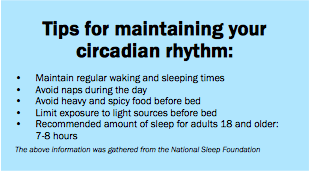
A bill is making its way through Michigan’s House of Representatives which would eliminate daylight savings observance in the state.
“It gets irritating when it gets dark super early. Everyone seems less motivated and just want to go to bed,” Ferris pre-optometry senior Jessica Manders said. “Especially in the winter it gets pretty hard.”
According to the Detroit Free Press, Michigan state representative Michele Hoitenga, R-Manton, sponsored a bill to eliminate daylight savings in the state of Michigan. The article states Hoitenga believes daylight savings is a nuisance for Michigan citizens. The bill calls for Michigan to eliminate daylight savings time altogether and keep Eastern Standard Time year-round for the state.
Currently, two states already do not observe daylight savings: Arizona and Hawaii.
“Daylight savings doesn’t really affect me that much. I don’t get enough sleep with or without it,” Ferris criminal justice senior Ashley Dewey said. “I don’t think we need to get rid of it if it’s something we’ve had around for so long.”
Research shows that daylight savings may have a negative effect on the human body. According to Harvard Health Publishing, Michigan cardiologists writing for the American Journal of Cardiology saw an increase of heart attacks around the spring transition of daylight savings. Additionally, individuals who sleep less than seven and a half hours a night have trouble transitioning to the new schedule when daylight savings passes.
“I know I definitely don’t get enough sleep,” Manders said. “I like to leave the TV on when I sleep, but then I end up getting distracted and end up paying attention to it instead of sleeping.”
According to the United States National Institute of Health, a consistent sleep schedule is necessary to improve learning skills, memory retention and problem solving. Adults 18 and older are recommended to get at least seven hours of sleep a night. If a person routinely loses sleep or doesn’t sleep enough, their body begins to incur sleep debt for every hour of sleep lost in a week. Sleep debt begins to have a negative impact on the human body, leading to decreased motor function and a reduction in cognitive abilities.
Students have many ways to combat the loss of sleep when daylight savings arrives. In an article published by the University of Colorado Boulder, it is said that limiting the amount of time spent using electronic screens can have a positive effect on sleep schedules. Also, avoiding food and drinks with excessive amounts of caffeine can help maintain a proper sleep schedule. Finally, the article states students should change their clocks one day before daylight savings goes into effect to help keep their schedules on track.

